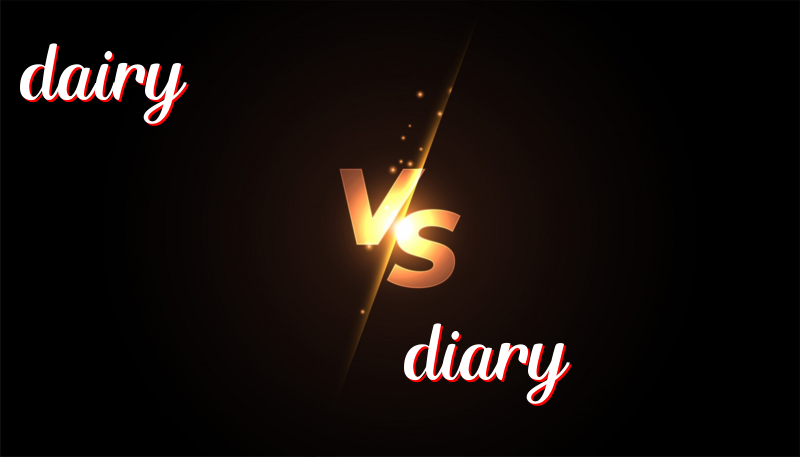Dairy vs. Diary: Understanding the Differences in Meaning and Usage
Understanding the Difference Between Dairy and Diary
The English language has many words that look and sound alike but have different meanings. Two such words are dairy and diary. Let’s explore their meanings, histories, and how to use them correctly.
History of the Words
Dairy comes from the Old English word ‘daege,’ which means a female servant. Later, it changed to mean a place where milk is kept. Diary comes from the Latin word ‘diarium,’ which means daily allowance. Over time, it came to mean a book where people write daily events.
How to Use Them
Dairy is a noun that refers to products made from milk like cheese, butter, and yogurt or a place where these products are made. Diary is a noun that means a book where you write about your daily life and feelings.
Trick to Remember the Difference
To remember the difference, think of the “a” in dairy standing for “animals” (cows give us dairy products) and the “i” in diary standing for “I” (because a diary is personal and about yourself).
Examples of Dairy
- I bought some dairy products from the store.
- Milk, cheese, and butter are all dairy items.
- She works at a dairy farm.
- Some people are allergic to dairy.
- The dairy section is at the back of the supermarket.
Examples of Diary
- I write in my diary every night.
- Her diary is full of personal thoughts.
- He kept a diary during his trip.
- My diary helps me remember important dates.
- The diary entry is very detailed.
Summary
Dairy refers to products made from milk or the place they’re made, and diary is a book where you write about daily life. Remember, “a” in dairy for “animals” and “i” in diary for “I.” This will help you use the right word.

Leave a Reply
You must be logged in to post a comment.